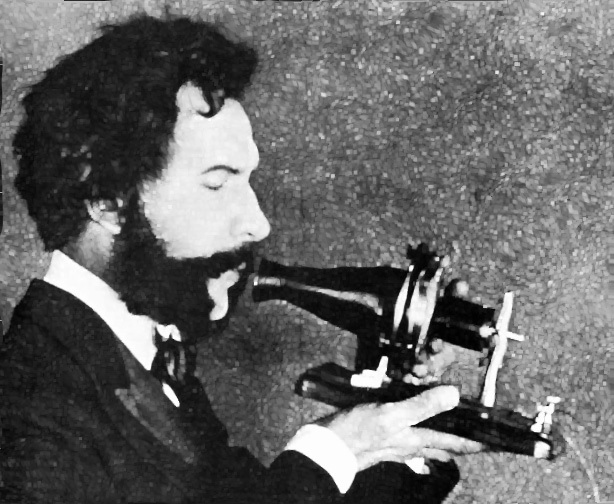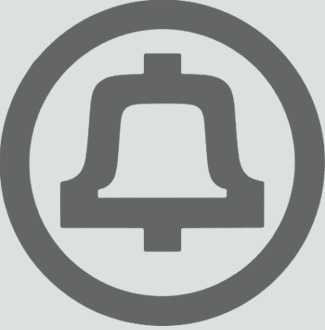Telecom Informer
by The Prophet
Hello, and greetings from the Central Office!
It's summer here in the Pacific Northwest, and eagles are making my life miserable. The local eagle population has decided that our cell towers are a good spot to watch for rabbits, whose populations exploded over the spring. 5G equipment is particularly sensitive to line-of-sight interference, and eagles an automatic yellow card for interference. But they're a national symbol and a protected species and I can't do a single thing about them.
The eagles probably aren't responsible for unexpected roaming by our customers onto Canadian carriers, but they're as good a reason to blame as any around here, where radio signals scatter through trees and skip happily for miles across bodies of water. For a long while, this wasn't much of a problem, because U.S. carriers programmed their handsets not to easily roam onto Canadian networks. In fact, they did the opposite (and still do to some degree) and would lock onto the home network with a death grip.
These days, for whatever reason, our customers on the "borderlands" (as they are locally called) are landing on Canadian networks more often. Canadian carriers have gone on a building spree lately, investing heavily in growing network coverage as they build out their 5G networks while some have also added 700 MHz 4G coverage. Frequencies are coordinated along the border, but Canadian carriers definitely aim for maximum advantage in covering the U.S. Our service is carefully tuned to stop working almost exactly when you cross the border. Depending upon where you are, theirs can be usable up to 20 miles inside the U.S. border.
Unexpected international roaming used to be something that carriers scrupulously avoided, and to some extent they still do. It created massive customer service problems whenever the bill showed up, given expensive international roaming charges. However, with the advent of cheap roaming agreements between North American carriers, U.S. carriers introduced service plans that include free roaming across North America.
This means that a lot less effort is put into hunting down areas where Canadian carriers are effectively providing service to the U.S. side (not that much is likely to be done about these places anyway, because it'd involve investing in infrastructure, something U.S. carriers aren't especially inclined to do).
All of this is fine until someone calls 911, which creates a massive problem. People in panicked, stressed situations aren't always situationally aware of whether they are using a Canadian tower, and a lot of place names sound the same in Washington and British Columbia. So it can take awhile for the 911 operator to work out what's happening and where the caller is, and transfer them to the correct Public Safety Access Point (PSAP). That is, if they even know the correct PSAP. Often they don't.
A 911 caller in western Washington will usually be in either San Juan or Whatcom counties, but not necessarily. This could mean a merry-go-round of transfers between PSAPs before a distressed caller (potentially in a life-or-death situation) is connected to the correct first responders.
Enter Northern911, which is based in Sudbury, Ontario.
This company has provided PSAP services to independent and VoIP carriers for decades, and is essentially the "oddball PSAP."
Owing to the geographically vast territory that they serve, their dispatchers are much more geographically aware than most and have an index of every PSAP in North America, along with the ability to transfer over primary E911 trunks into most of them. In fact, they operate a freemium "911 for 911" service, where 911 operators can call 1-866-869-9959 for assistance with properly routing the call.
This is much faster than other commonly used methods such as NENA directory searches, and is likely to yield more accurate information (given that Northern911 dispatchers have considerable human expertise in which PSAPs serve what geographies). Up to five calls per month are free, after which Northern911 operates on a subscription model.
In emergencies, seconds can matter, and chat bots haven't been able to effectively replace 911 operators yet. And if you're having an emergency along the Canadian border and end up with a 911 dispatcher on the wrong side, there's a very good chance that some folks in Sudbury will be involved in figuring out where you are, and which first responders will be helping you.
And with that, if you're one of the thousands of people swarming to the borderlands to enjoy the great outdoors this summer, please enjoy them safely. There are any number of emergencies that simply didn't need to happen or result in a 911 call, particularly those involving cliff diving, guns, and fireworks.
One thing that will be safe this summer? A New HOPE! Hopefully, I will have seen you there in New York when it happened in July.
And with that, I'll be back to doing everything I legally can to encourage these eagles to fly north across the border and harass a Canadian carrier's towers.

